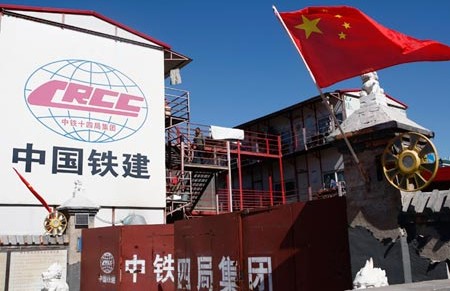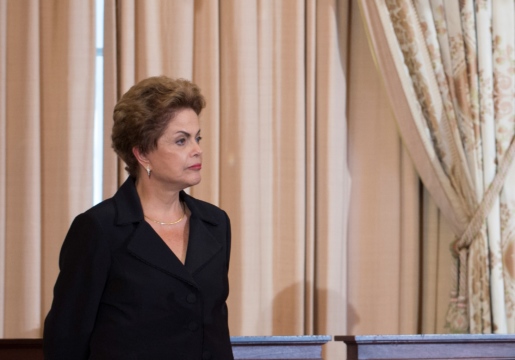
New Approaches for Chinese Miners in Peru
Studies show an improvement in environmental and social practices among Chinese mining companies in Peru.
While the Covid-19 pandemic has impacted every country in the world, it is clear that Latin America and the Caribbean has borne the brunt of its devastation. In the months since the World Health Organization designated the region as the Covid-19 global epicenter, Latin America and the Caribbean now has the highest death toll and case rate in the world. Additionally, in its October 2020 World Economic Outlook, the International Monetary Fund projected Latin America and the Caribbean to be the hardest-hit developing region in terms of GDP contraction in 2020. Long before the pandemic began to ravage the Western hemisphere, though, the region had been struggling to deal with the scourge of corruption. As governments and regional organizations muster a plan for post-pandemic economic recovery, addressing corruption must be at the forefront of any response — now more than ever.
In many Latin American countries, the necessary government responses to the pandemic have increased the space for opportunism and malpractice from public officials, especially in the realm of public health-related acquisitions and procurement of PPE, ventilators and other necessary supplies. For example, Colombia’s inspector general opened hundreds of corruption cases against political donors who received lucrative contracts, and in an earlier investigation, the Colombian Minister of Agriculture allegedly misappropriated funds related to Covid-19. In Bolivia, Health Minister Marcelo Navajas was detained due to accusations that the government had purchased ventilators at vastly inflated prices, and prosecutors claim that an Ecuadorian criminal ring colluded with Health Ministry officials to sell body bags to hospitals at over 13 times the appropriate price. And in Mexico, the son of the head of the federal electricity commission and key ally of López Obrador was ordered to recall dozens of flawed ventilators that he had sold to the federal hospital system for inflated prices.
Corruption at this scale is not new to the Americas. According to the 2020 Capacity to Combat Corruption (CCC) Index produced by AS/COA, 2019 was characterized by a regional trend away from adopting anti-corruption measures. Furthermore, the lack of a coordinated hemispheric response to the ramifications of Covid-19 exemplifies the additional tendency away from multilateralism. These negative trends are echoed in the most recent Latinobarómetro statistics concerning public trust in institutions.
It is important to acknowledge these challenges, even before Covid-19 exacerbated and continues to worsen the corruption landscape across the hemisphere. Public officials in Latin America and the Caribbean have historically lacked the political will to institute deep-cutting anti-corruption reforms. Even so, the pandemic has laid bare the consequences of corruption and institutional failure in such a drastic manner that the path forward must include systemic changes in how governments reach their citizens and address corruption in all of its forms.
This is, of course, especially relevant as governments across the region attempt to provide economic relief for their citizens and adequate supplies for their health systems to alleviate the worst effects of the pandemic. Poor governance and mismanagement of resources preclude public officials from responding efficiently even when they have the best intentions, but cases of willful price gouging compound the problem. The cases of corruption from across the hemisphere illustrate the institutional deficits that have hindered these government responses, producing wasteful inefficiencies that in turn have contributed to the current state of affairs.
Consider the case of Uruguay, which has by far the lowest rates of coronavirus in the Americas as well as the lowest rates of public perception of corruption according to the 2018 Latinobarómetro survey. Part of the reason for Uruguay’s success has been its relative institutional strength and capacity for governance, lending credibility to social distancing mandates and other relevant health guidelines, while also enabling the government to extend an economic lifeline to its citizens. In comparison, Peru adopted very similar policies in mid-March to combat the spread of the virus, but (as of October 13) has recorded around 25,000 cases per million (compared to just over 650 per million in Uruguay) due to rampant informality and inability of the government to adequately reach the population.
While Uruguay has been successful in facilitating cash transfers to vulnerable citizens, corruption at the municipal level in Peru leeches off of an already weak service delivery system, preventing money and other resources from reaching those who need them most. The juxtaposition of these two South American countries illustrates the importance of institutional capacity in combating corruption and fostering public trust.
It is important to acknowledge that institutions include not only formal laws, but also informal norms and customs, all of which constrain and dictate the actions of public officials. Weak accountability mechanisms and low levels of political will, which characterize the majority of countries in the region, shape the incentive structures facing public officials who choose to engage in these corrupt practices. And while many Latin American countries have auditors, anti-corruption bodies, and other entities to combat poor governance, they are undermined by an institutional framework that nonetheless incentivizes corruption at every level of government.
Even so, there are avenues by which governments, both at local and national levels, can address the shortcomings of these institutional frameworks. For example, at a Dialogue webinar on July 30, Mexican Ambassador Martha Bárcena referenced the example of Georgia, in which deep-cutting legal reforms were coupled with a normative shift away from associating corruption with wealth and success, thus addressing the issue of political will by targeting the incentives that bureaucrats across the country respond to. In doing so, the government profoundly altered the prevailing narrative that public sector employees had to engage in corrupt practices in order to be successful.
More recently, Paraguay’s adoption of the MapaInversiones platform, which allows for greater transparency in pandemic-related public procurement data, demonstrates cooperation with multilateral organizations such as the IDB in promoting accountability and efficiency. By decreasing the space for opportunism and centering outcomes around public engagement with resource management data, the government of Paraguay is able to send a clear signal that its main priority is an efficient, people-centered pandemic response rather than enriching the coffers of public officials. These priorities may explain Paraguay’s relative success in combating the adverse effects of Covid-19.
The political will to implement reforms such as these, especially during one of the most tremendous and multidimensional challenges that the region has faced, may be difficult for regional governments to muster. Even so, the vast majority of Latin Americans view corruption as a major public policy challenge, and recent protests have served as a clear signal that people are demanding change. As regional governments consider bold solutions to emerge from the pandemic, they must make credible commitments to curbing corruption, not solely to eliminate economic inefficiency and streamline government functions, but to restore public trust in institutions and cement transparency as a key priority throughout the region. By engaging with regional and multilateral organizations in addition to centering public accountability in domestic reforms, countries in the Americas can put their best foot forward both in the immediate recovery from Covid-19 and the years of growth to come.
Casey Wetherbee is currently pursuing a BSFS in international political economy and an MA in security studies at Georgetown’s School of Foreign Service. He was previously an intern with the Office of the President at the Dialogue.
Economic Recovery and the Potential for Expanding Production in the Americas
Covid-19 in the Americas: The Dialogue’s Coronavirus Updates
Economic Recovery and the Potential for Expanding Production in the Americas
Covid-19 in the Americas: The Dialogue's Coronavirus Updates
Studies show an improvement in environmental and social practices among Chinese mining companies in Peru.
What does the failed China-Mexico rail deal mean for bilateral relations?
Brazil’s debilitating problems seem to be of far greater interest than its spectacular rise just a few years ago.

